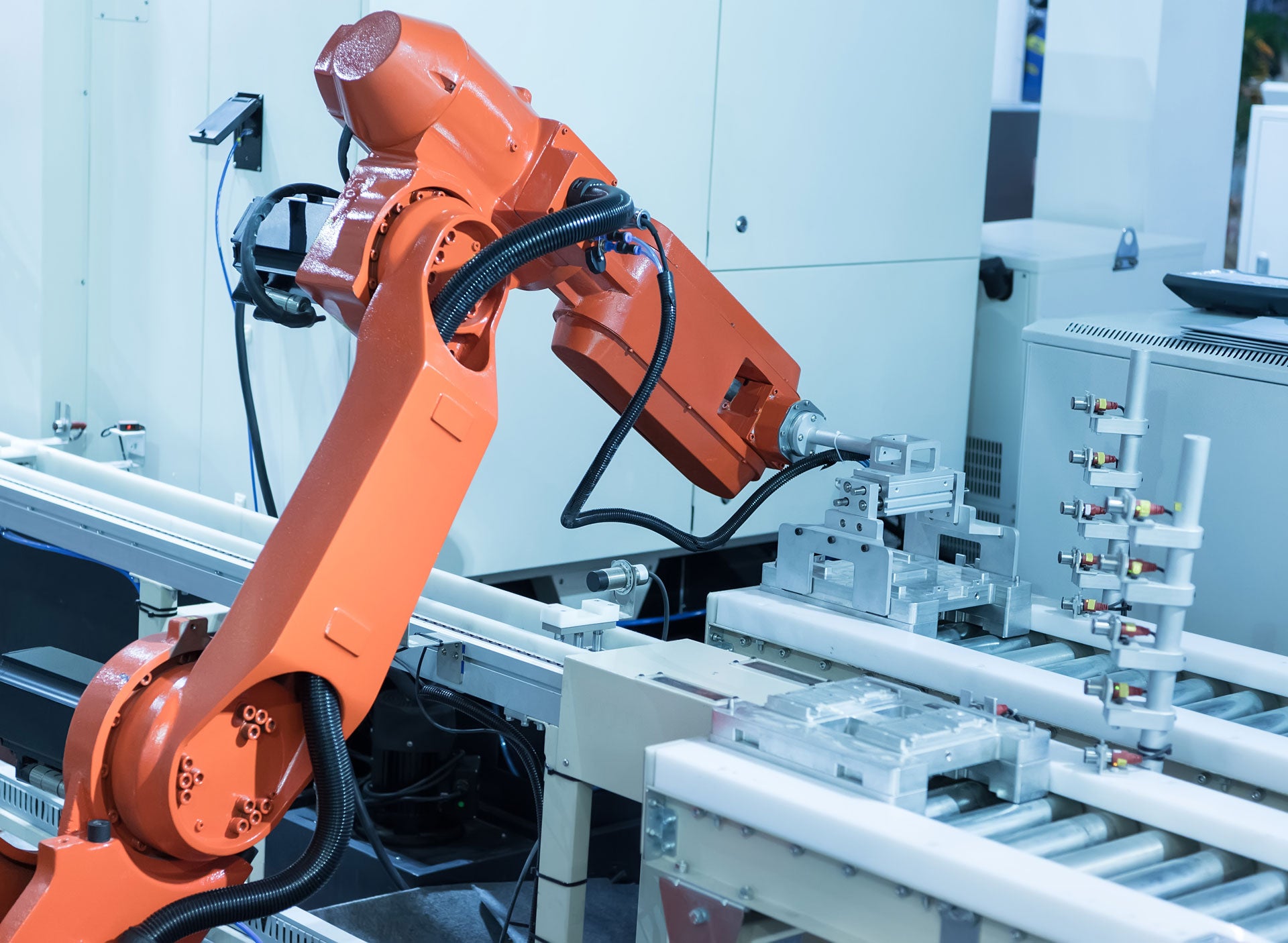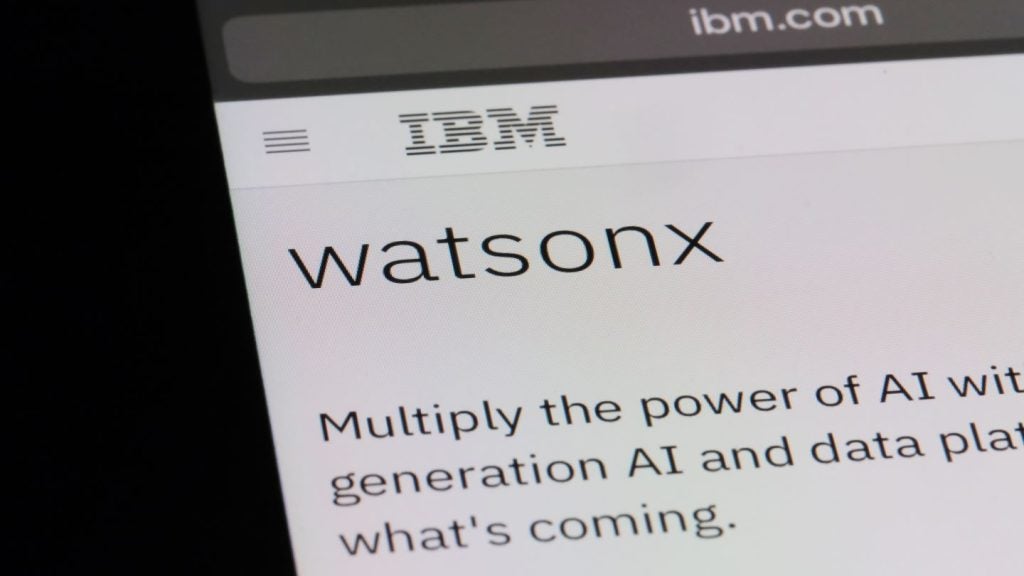The world of industrial automation is being driven by improvements in, as well as a reduction in, the cost of connectivity and advances in artificial intelligence (AI). The first of these lowers the cost of connecting robots to a central server, and the second allows organisations to derive greater value from that connectivity.
Advances in AI have also enabled the development of robots, allowing them to become highly complex products rather than the standalone, fixed function machines they used to be.
Central to this development has been cloud computing, which allows sensing, computation and memory to be managed more rapidly, securely and at scale. The use of cloud within robotics also has the potential to change the way that the technology is consumed, as the robotics as a service (RaaS) market includes products that integrate cloud-based management and analytics services with physical robots.
All of the leading robot manufacturers have implemented cloud connectivity, enabling robots to be monitored, managed and maintained remotely. This has also made it possible for suppliers to support a consumption-based ‘as a service’ model, which itself is tied to the Industrial Internet of Things (IIoT) that is driving several advances in automation.
To take industrial automation and industrial robotics to the next level, however, further advances are needed in some AI technologies, including computer vision, natural language processing and contextual awareness. Neuromorphic processors – chips that think like a human brain – will become an important part of the next generation of robots, as they are trained using basic libraries of relevant data and then taught to think by themselves by processing sensory inputs.
Nearly two million new industrial robots are forecast to be sold in 2020, with a third of those in China. Indeed, the Chinese government’s desire for China’s factories and business to modernise and transform their operations through better process management means China alone will claim one-third of the global IIoT market by 2025.
How well do you really know your competitors?
Access the most comprehensive Company Profiles on the market, powered by GlobalData. Save hours of research. Gain competitive edge.

Thank you!
Your download email will arrive shortly
Not ready to buy yet? Download a free sample
We are confident about the unique quality of our Company Profiles. However, we want you to make the most beneficial decision for your business, so we offer a free sample that you can download by submitting the below form
By GlobalDataThe Made in China 2025 plan, published in summer 2015, explained why China needs to move up the technology ladder and close the gap with developed countries in intelligent manufacturing. The plan identifies ten key sectors and sets out topline targets to raise domestic content in core components and materials.
The world’s top companies for industrial automation
Who is likely to succeed in this fast-growing industrial automation market? The top four companies best placed to make their mark in the industrial automation sector, according to GlobalData’s theme-based analysis, are Google parent Alphabet, SAP, Ocado and Fanuc.
GlobalData has scored the world’s top 46 industrial automation companies on their competitive position in relation to the ten themes that matter most to their industry.
These 46 companies comprise industrial automation equipment and software, including makers of automobile sub-systems.
Industrial automation: What are the leading themes?
The top themes disrupting the industrial automation sector have been defined as the following (with the % weighting given to them in brackets):
- Enterprise SaaS (20%)
- Robotics (20%)
- Cloud IaaS/PaaS (10%)
- Industrial Internet (10%)
- AI (10%)
- Robotics-as-a-Service (5%)
- Self-driving car (5%)
- Advanced manufacturing (10%)
- China (5%)
- Medtech (5%).
Alphabet has been ranked as a leader in four out of ten areas, meaning it is ideally positioned to perform well in the future. In second place, with three leadership rankings was SAP, followed by the UK’s Ocado and Japan’s Fanuc.
The world’s top ten companies for industrial automation
The full top ten listing, with market capitalisation (as at December 2018) and company country of origin is:
- Alphabet ($710.7bn) – US
- SAP ($121.8bn) – Germany
- Ocado ($6.8bn) – UK
- Fanuc ($28.8bn) – Japan
- KUKA ($2.7bn) – Germany
- Tesla ($62.8bn) – US
- Amazon ($778.3bn) – US
- GE ($61.7bn) – US
- HollySys Automation ($1.1bn) – China
- Harmonic Drive ($2.9bn) – Japan
The GlobalData Thematic Screen ranks companies within a sector on the basis of overall technology leadership in the ten themes that matter most to their industry, generating a leading indicator of future earnings growth.
Five predictions about the future of industrial automation
Here are five predictions about the future of industrial automation, focused around the key disruptive industry themes.
- Industrial Internet
While there is a lot of excitement about the ‘factory of the future’ and ‘Industry 4.0’, existing factories, machines and processes represent the primary opportunity. The biggest short-term gains will come from retrofitting advanced communications and management functionality to today’s industrial infrastructure. The ability to provide the manufacturers of industrial machinery access to real-time performance means that manufacturers can offer new services and support new business models such as pre-emptive maintenance or RaaS.
Leaders: Schneider Electric, Siemens, Cisco, Bosch, Honeywell
- Industrial robots
The outlook is promising for the specialist parts vendors of, for example, linear motors, reduction gears and magnetic tracks. They are led by Japan’s Nabtesco, Harmonic Drive, Keyence and Nippon Ceramic, which control over 80% of the burgeoning Chinese market. Even though Chinese authorities want to develop a world-class domestic robotics industry in both components and finished robots, the native Chinese industry struggles to meet 30% local market requirements. A major development in 2019 will be the launch of the Google Cloud Robotic Platform, which will give robot developers access to Google’s AI capabilities and eventually enable the remote management of teams of robots.
Leaders: Fanuc, Nabtescu, Google, Harmonic Drive, Keyence, Nippon Ceramic, Rockwell Automation, Midea/Kuka
- Quantum computing
Quantum computing will have a significant impact in several key domains, where complex mathematics is required in order to support simulation or factorisation. We are at the very beginning of the quantum journey and may have to wait years before practical, scalable, general purpose computing is universally available. The leaders in this field are all treating their quantum computing efforts as long term research and while in the next two years, there are expected to be partnerships and consortia form around quantum technology, this is more likely to take the form of pooled research than product development.
Leaders: IBM, Google, Microsoft, MiT, Oxford University
- Augmented reality and virtual reality (VR/AR)
In industrial automation, VR/AR is still at an early stage and few industries have adopted the technology. But AR/VR is expected to become a standard tool in the manufacturing industry by 2020. Among those that have are the automotive and aircraft industries e.g. Boeing and Ford use Google Glass and Microsoft’s HoloLens to assist in the construction and design of airplanes and cars. In sectors such as oil and gas, the challenge will be how to provide virtual training without reducing safety standards or operational effectiveness. The same safety issue is likely to apply in building and construction.
Leaders: Virtual Reality – Facebook, Google, HTC, NVIDIA, Samsung, Sony
Augmented Reality – Magic Leap, Microsoft, Google
5. China
China’s global economic and industrial impact is obvious. It accounts for more than 40% of the global car market, nearly 50% of the global semiconductor market and over 30% of the industrial robot market. It is the world’s heaviest consumer of key raw materials such as copper, sand for construction, lithium, cobalt and rare earths.
Under the Made in China 2025 plan, it aims to be on a par with the US, Japan, and South Korea in such areas as semiconductors, robots, batteries, and – most critically of all – supplant them in AI. Here it has the advantage of the world’s richest and most scalable datasets for its algorithms to work with and $145bn state backing for the research and development efforts of the AI ‘national team’ of Baidu, Alibaba, Tencent and iFlytek.
Leaders: Alibaba, Tencent, Baidu, iFlytek, Huawei, HiSilicon, Lenovo, SenseTime, Cambricon
What is the GlobalData Thematic ScoreCard?
The GlobalData Thematic Research ecosystem is a single, integrated global research platform that provides an easy-to-use framework for tracking all themes across all companies in all sectors.
From Coca-Cola to Cisco; from Tesco to Thomson-Reuters, their awareness of or susceptibility to disruptive themes – from artificial intelligence to e-commerce or Big Data to Brexit – is what will make or break them.
The GlobalData Thematic ScoreCard is the methodology that not only tells savvy CEOs across every sector what themes they should be aware of, it then uniquely then tells them which suppliers they can trust to help them survive disruptive change. Its ‘Screen of Truth’ identifies not today’s incumbents, but tomorrow’s leaders and laggards.
Research methodology
Our thematic scores are based on our analysts’ assessment of their competitive position in relation to a theme, on a scale of 1 to 5:
- Vulnerable: The company’s activity with regards to this theme will be highly detrimental to its future performance.
- Follower: The company’s activity with regards to this theme will be detrimental to its future performance.
- Neutral: The company’s activity with regards to this theme will have a negligible impact on the company’s future performance, or this theme is not currently relevant for this company.
- Leader: The company is a market leader in this theme. The company’s activity with regards to this theme will improve its future performance.
- Dominant: The company is a dominant player in this theme. The company’s activity with regards to this theme will significantly improve its future performance.









Related Company Profiles
iFlytek Co Ltd
NVIDIA Corp
Rockwell Automation Inc
Bosch Ltd
HTC Corp